FINDING LCM AND HCF USING VENN DIAGRAM
To find LCM and HCF of two numbers using venn diagram, we have to follow the steps given below.
Step 1 :
Write the prime factors of the given numbers.
Step 2 :
Draw two circles to represent the factors of given numbers.
Step 3 :
The common factors should be placed in the intersection part and other numerical values should be fixed in the respective circles based on the number that we have in the question.
Step 4 :
Finding the product of prime factors that we find in the intersection part, we will get the greatest common divisor.
By multiplying all the values that we find inside the circles, we will get the least common multiple.
Find the highest common factor (HCF) of each pair of numbers.
Problem 1 :
21 and 49
Solution:
21 = 3 × 7
49 = 7 × 7
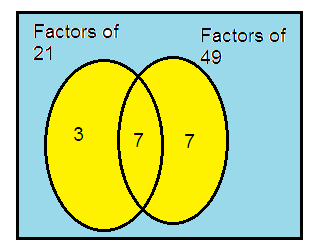
So, the HCF of 21 and 49 is 7.
Problem 2 :
35 and 45
Solution:
35 = 5 × 7
45 = 5 × 9
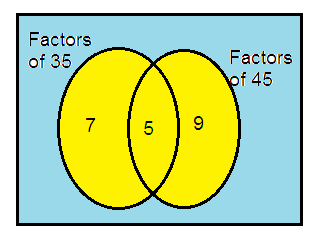
So, the HCF of 35 and 45 is 5.
Problem 3 :
18 and 24
Solution:
18 = 2 × 3 × 3
24 = 2 × 2 × 2 × 3
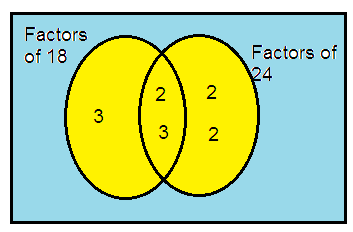
So, the HCF of 18 and 24 is
= 2 × 3
= 6
Problem 4 :
18 and 45
Solution:
18 = 2 × 3 × 3
45 = 5 × 3 × 3
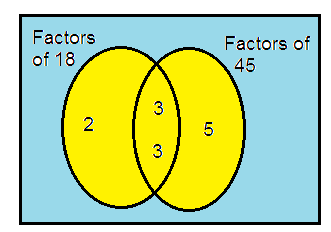
So, the HCF of 18 and 45 is
= 3 × 3
= 9
Problem 5 :
30 and 75
Solution:
30 = 2 × 3 × 5
75 = 3 × 5 × 5
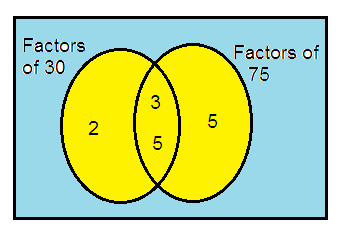
So, the HCF of 30 and 75 is
= 3 × 5
= 15
Problem 6 :
28 and 42
Solution:
28 = 2 × 2 × 7
42 = 2 × 3 × 7
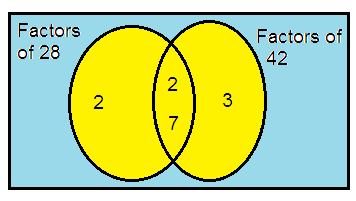
So, the HCF of 28 and 42 is
= 2 × 7
= 14
Problem 7 :
60 and 90
Solution:
60 = 2 × 2 × 3 × 5
90 = 2 × 3 × 3 × 5
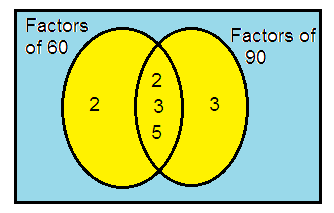
So, the HCF of 60 and 90 is
= 2 × 3 × 5
= 30
Problem 8 :
48 and 64
Solution:
48 = 2 × 2 × 2 × 2 × 3
64 = 2 × 2 × 2 × 2 × 2 × 2
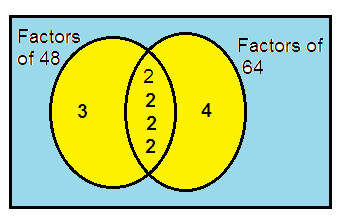
So, the HCF of 48 and 64 is
= 2 × 2 × 2 × 2
= 16
Find the lowest common multiple (LCM) of each pair of numbers.
Problem 9 :
15 and 35
Solution:
15 = 3 × 5
35 = 7 × 5
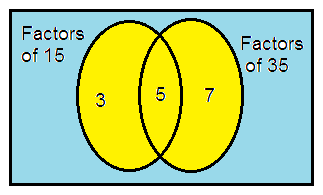
So, the LCM of 15 and 35 is
= 3 × 5 × 7
= 105
Problem 10 :
14 and 22
Solution:
14 = 2 × 7
22 = 2 × 11
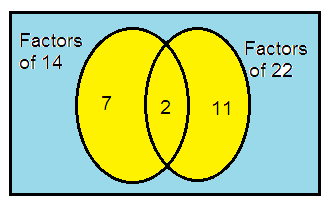
So, the LCM of 14 and 22 is
= 2 × 7 × 11
= 154
Problem 11 :
15 and 21
Solution:
15 = 3 × 5
21 = 3 × 7
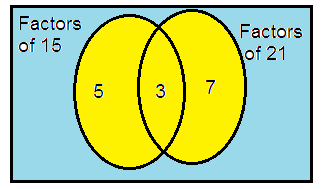
So, the LCM of 15 and 21 is
= 3 × 5 × 7
= 105
Problem 12 :
9 and 33
Solution:
9 = 3 × 3
33 = 3 × 11
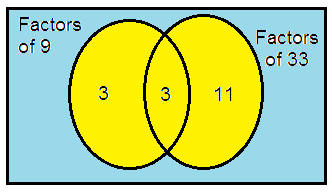
So, the LCM of 9 and 33 is
= 3 × 3 × 11
= 99
Problem 13 :
12 and 15
Solution:
12 = 2 × 2 × 3
15 = 3 × 5
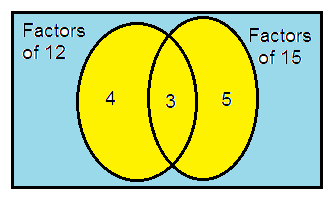
So, the LCM of 12 and 15 is
= 4 × 3 × 5
= 60
Problem 14 :
18 and 30
Solution:
18 = 2 × 3 × 3
30 = 2 × 3 × 5
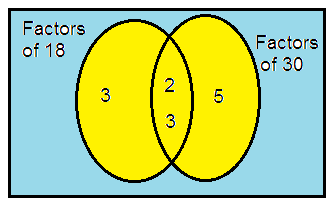
So, the LCM of 18 and 30 is
= 2 × 3 × 3 × 5
= 90
Problem 15 :
16 and 20
Solution:
16 = 2 × 2 × 2 × 2
20 = 2 × 2 × 5
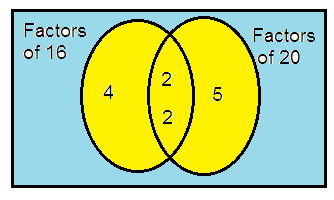
So, the LCM of 16 and 20 is
= 2 × 2 × 4 × 5
= 80
Problem 16 :
24 and 30
Solution:
24 = 2 × 2 × 2 × 3
30 = 2 × 3 × 5
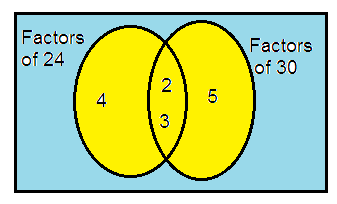
So, the LCM of 24 and 30 is
= 2 × 3 × 4 × 5
= 120
Recent Articles
-
Finding Range of Values Inequality Problems
May 21, 24 08:51 PM
Finding Range of Values Inequality Problems -
Solving Two Step Inequality Word Problems
May 21, 24 08:51 AM
Solving Two Step Inequality Word Problems -
Exponential Function Context and Data Modeling
May 20, 24 10:45 PM
Exponential Function Context and Data Modeling